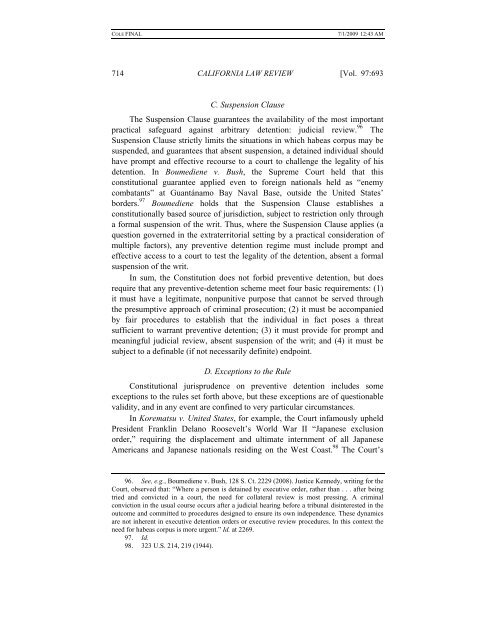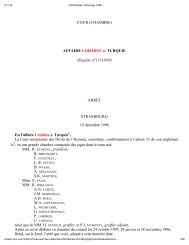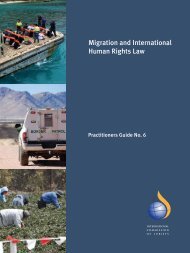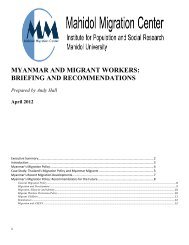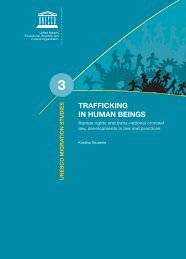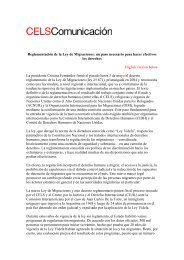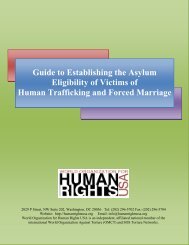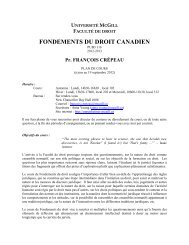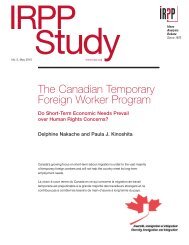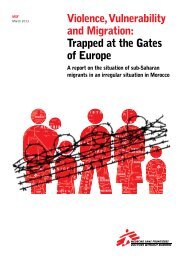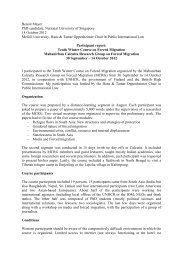Preventive Detention, Suspected Terrorists, and War
Preventive Detention, Suspected Terrorists, and War
Preventive Detention, Suspected Terrorists, and War
You also want an ePaper? Increase the reach of your titles
YUMPU automatically turns print PDFs into web optimized ePapers that Google loves.
COLE FINAL<br />
7/1/2009 12:43 AM<br />
714 CALIFORNIA LAW REVIEW [Vol. 97:693<br />
C. Suspension Clause<br />
The Suspension Clause guarantees the availability of the most important<br />
practical safeguard against arbitrary detention: judicial review. 96 The<br />
Suspension Clause strictly limits the situations in which habeas corpus may be<br />
suspended, <strong>and</strong> guarantees that absent suspension, a detained individual should<br />
have prompt <strong>and</strong> effective recourse to a court to challenge the legality of his<br />
detention. In Boumediene v. Bush, the Supreme Court held that this<br />
constitutional guarantee applied even to foreign nationals held as “enemy<br />
combatants” at Guantánamo Bay Naval Base, outside the United States’<br />
borders. 97 Boumediene holds that the Suspension Clause establishes a<br />
constitutionally based source of jurisdiction, subject to restriction only through<br />
a formal suspension of the writ. Thus, where the Suspension Clause applies (a<br />
question governed in the extraterritorial setting by a practical consideration of<br />
multiple factors), any preventive detention regime must include prompt <strong>and</strong><br />
effective access to a court to test the legality of the detention, absent a formal<br />
suspension of the writ.<br />
In sum, the Constitution does not forbid preventive detention, but does<br />
require that any preventive-detention scheme meet four basic requirements: (1)<br />
it must have a legitimate, nonpunitive purpose that cannot be served through<br />
the presumptive approach of criminal prosecution; (2) it must be accompanied<br />
by fair procedures to establish that the individual in fact poses a threat<br />
sufficient to warrant preventive detention; (3) it must provide for prompt <strong>and</strong><br />
meaningful judicial review, absent suspension of the writ; <strong>and</strong> (4) it must be<br />
subject to a definable (if not necessarily definite) endpoint.<br />
D. Exceptions to the Rule<br />
Constitutional jurisprudence on preventive detention includes some<br />
exceptions to the rules set forth above, but these exceptions are of questionable<br />
validity, <strong>and</strong> in any event are confined to very particular circumstances.<br />
In Korematsu v. United States, for example, the Court infamously upheld<br />
President Franklin Delano Roosevelt’s World <strong>War</strong> II “Japanese exclusion<br />
order,” requiring the displacement <strong>and</strong> ultimate internment of all Japanese<br />
Americans <strong>and</strong> Japanese nationals residing on the West Coast. 98 The Court’s<br />
96. See, e.g., Boumediene v. Bush, 128 S. Ct. 2229 (2008). Justice Kennedy, writing for the<br />
Court, observed that: “Where a person is detained by executive order, rather than . . . after being<br />
tried <strong>and</strong> convicted in a court, the need for collateral review is most pressing. A criminal<br />
conviction in the usual course occurs after a judicial hearing before a tribunal disinterested in the<br />
outcome <strong>and</strong> committed to procedures designed to ensure its own independence. These dynamics<br />
are not inherent in executive detention orders or executive review procedures. In this context the<br />
need for habeas corpus is more urgent.” Id. at 2269.<br />
97. Id.<br />
98. 323 U.S. 214, 219 (1944).


